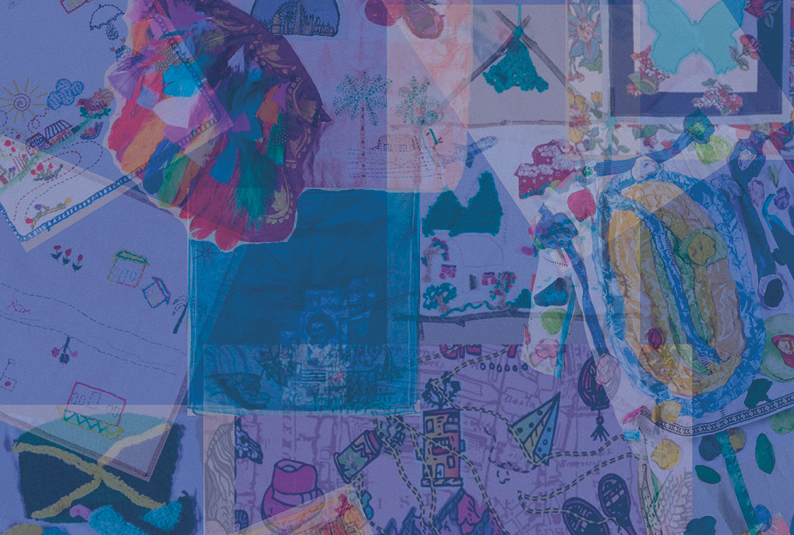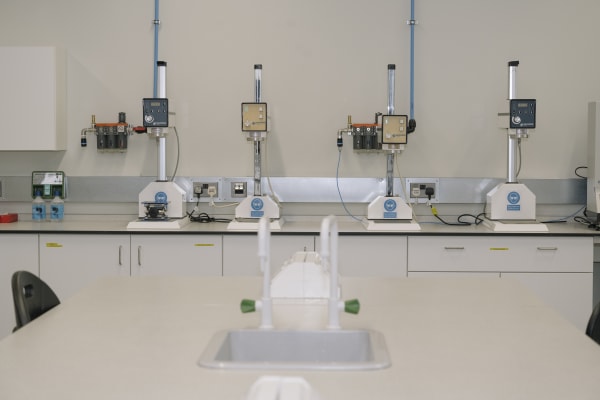Course units
This course will run across three blocks and include shared units in Block 1 and Block 2. The independent-research unit in Block 3 is the award bearing unit.
The units are detailed as follows:
Block 1
Cultural Contexts of Global Fashion Marketing (20 credits)
This unit will provide you with an insight into the distinctive practices of fashion and marketing and explore their uses amongst diverse international cultures. You will also be given the chance to explore wider considerations of cultural practices and expressions, such as: creative writing, visual communications and narratives and music and their relations to fashion marketing practices. The unit will support your use of analytical, critical and research skills and expand your subject knowledge of areas related to fashion, marketing and cultural practices through theories and principles that support an understanding of global perspectives, alongside developing your considerations of how to integrate racial and social justice practices with the context of global cultures and in fashion marketing.
Fashion Marketing Strategy (20 credits)
Fashion is a truly global industry in which political, economic, social, legal, environmental, and technological developments are causing the reinvention of traditional business models. Fashion marketeers of the future need to be at the forefront, provoking and inspiring change. This unit allows you to think strategically about markets and marketing activities and understand how fashion marketing strategy works in practice, its influence on its various stakeholders and how it’s situated in the context of the overall strategic direction of a business. The emphasis is on how fashion businesses adapt and change for future success in a globalised and cross-cultural industry. You are expected to develop knowledge and awareness of national, local, and global audiences, within the context of different cultures, understanding how this can influence strategic planning and key performance indicators for fashion products and services.
Consumer insights for Communication (20 credits)
In a dynamic and digitally driven fashion industry, effective communication is the key to success. This unit adopts a customer-centric approach enabling you to identify, evaluate and respond to consumer motivations and emotions elicited by fashion brands. This unit equips you with the theoretical and practical knowledge to formulate and manage communication strategies that resonate with consumers and drive business growth. You will also explore the competitive landscape of the global fashion industry and explore the financial implications of integrated marketing communication strategies.
Block 2
Elective Units (20 credits)
Students will have the opportunity to participate in an elective unit as part of this course. This is an opportunity for students to collaborate with students from other courses within the college.
The following is an example list of electives that have been previously delivered:
- Creative Decision Making for Fashion Enterprise
- Cultural Programming
- Fashion Politics and Cultures
- Fashion Practices for Social Change
- Fashion Together: Collaboration for Innovation
Please note:
- Elective unit titles and details of the unit may change year to year
- Elective units offered may change year to year, that is, unit listed above may or may not be offered in subsequent years
- Students participate in a bidding process for choosing electives and participation in any particular elective is not guaranteed
Advanced Marketing Strategy for Global Cultures (20 credits)
This unit will present stages of activities within the global fashion industry on macro, meso and micro levels and present relations with cultural considerations at each level. You will be provided opportunity to explore traditional and contemporary models, theories and real-life cases in corporate and national, corporate, and individual behaviours applying these with the context of global cultures. The unit delves into the intricacies of applied marketing strategy and present you with correlations between international business development with sustainable, technological, and wider segments of the fashion industry. You will have the chance to explore areas such as: migration, economics and international relations business operations alongside subcultures, national culture and identity and the role of individuals impacting on business, industry, and national behaviour.
Advanced Research Methods (20 credits)
Developing effective approaches to research is crucial for success in your Master's project (MAP) and in your wider career. In this unit you will start to develop and explore your individual research project in preparation for your MAP. You will start to build a theoretical framework for your project and isolate the purpose of the research through the development of a project aim and objectives. You will also decide the research philosophy and design you wish to implement for your MAP, developing a robust theoretically justified research proposal. In the process of developing your research proposal you will consider a range of research methodologies, methods, and approaches, evaluating how you will utilise primary research tools effectively in your MAP.
Block 3
Master’s Project (60 credits)
The Master’s Project is the final stage of your Masters’ course and is the culmination of your studies and provides you with a space to synthesise all the knowledge and skills you have gained on the course so far. Your project will be self-directed, and you will negotiate the shape and direction of your project at the outset with your supervisor. This important final phase of your studies is where you will effectively communicate your work along with your ability to critically interrogate your practice with robust approaches to research and theoretical analysis. Upon completion of your project, you will have generated a high-level Masters’ quality piece of work that will showcase your practice, academic literacy and the professional standards that will act as a platform for your future career and professional development.





